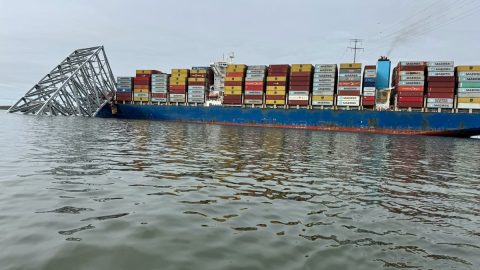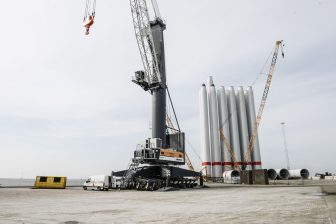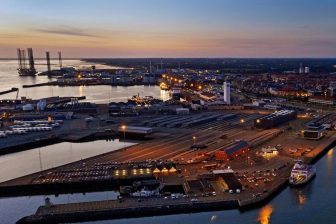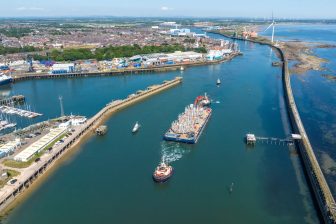
Key Bridge collapse cuts off the port, while overall impact on US economy is limited
The fatal incident when the Maersk chartered container vessel Dali lost power and struck the Francis Scott Key Bridge in Baltimore, Maryland, will have a major impact on the local port according to the Container xChange, an online global container logistics platform, based in Hamburg, Germany.
MSC and Maersk have already decided to omit the Port of Baltimore from all of their services until further notice. However, the consultancy said that its effect on the overall US economy remains relatively limited. The bridge collapse occurred in the early hours of Tuesday, March 26, 2024, plunging cars into the river below and leading to the suspension of traffic at the port until further notice, according to Maryland transportation authorities.
“Collapse of the Francis Scott Key Bridge in Baltimore is a stark reminder of the fragility of our infrastructure and the critical need for resilience in the face of unexpected events,” said Christian Roeloffs, cofounder and CEO of Container xChange.
“As we navigate the aftermath, we are reminded that the container logistics industry centers around the critical need for robust risk management and resilience in supply chain operations. It highlights the importance of contingency planning, diversified routing options, and the integration of real-time tracking and analytics to mitigate the impacts of unforeseen events. This incident serves as a reminder that infrastructure vulnerabilities can lead to disruptions, and being prepared with flexible, adaptive strategies is essential for maintaining continuity in the face of challenges.” Roeloffs added.
While the full extent of the impact is yet to be determined, the collision is likely to have far-reaching consequences for the Port of Baltimore and its role in the regional and national economy.
The container vessel Dali was operated by Synergy Group and time-chartered by Maersk. Maersk has confirmed that no crew or personnel were onboard the vessel at the time of the incident.
Key Bridge collapse effects
The Port of Baltimore is a crucial gateway for specialised cargo and bulk handling, serving as a key link in many supply chains, according to Container xChange. Delays in cargo movement could lead to inventory shortages, affecting businesses that rely on timely deliveries, like the automotive industry which requires assemblies coming from different parts of the world.
The collapse of the Francis Scott Key Bridge could significantly disrupt the flow of goods in and out of the Port of Baltimore, particularly automobiles and crude oil. The port is a crucial gateway for specialized cargo and bulk handling, serving as a key link in many supply chains.
Companies should prepare to face higher transportation costs as they are forced to seek alternative routes to bypass the affected area. These additional costs could result in increased prices for goods, impacting both businesses and consumers, Container xChange analysts say.
UTC has already issued an update on the Baltimore bridge collapse, noting that it is monitoring the situation and working on contingency plans, including rerouting affected cargo
Impact on Port Operations
The harbor is one of the busiest in the country and an important hub for shipping on the US East Coast, especially in transporting road vehicles. According to a Maryland government website, it also handles farming, construction machinery, and coal. Port traffic was suspended until further notice following the bridge collapse.
The Port of Baltimore is a crucial gateway for the transportation of raw materials and finished goods, enabling trade to and from Maryland, the mid-Atlantic region, and the Midwest United States. It is one of the leading U.S. ports in handling farm and construction machinery, automobiles, imported forest products, imported sugar, imported gypsum, and exported coal. The port’s infrastructure, which includes a 50-foot-deep channel and large cranes, makes it capable of accommodating enormous containerships, such as the Evergreen Ever Max. In mid-August 2023, the latter docked at the Seagirt Marine Terminal.
The full extent of the impact is still unknown. However, the disturbances in traffic and port operations have the potential to result in significant economic losses. The port contributes almost $3.3 billion to total personal income and provides direct employment to over 15,000 people, with an additional 139,000 jobs associated with port activities. The suspension of port activities could cause financial difficulties for individuals and businesses that depend on port-related work.
You just read one of our premium articles free of charge
Register now to keep reading premium articles.




